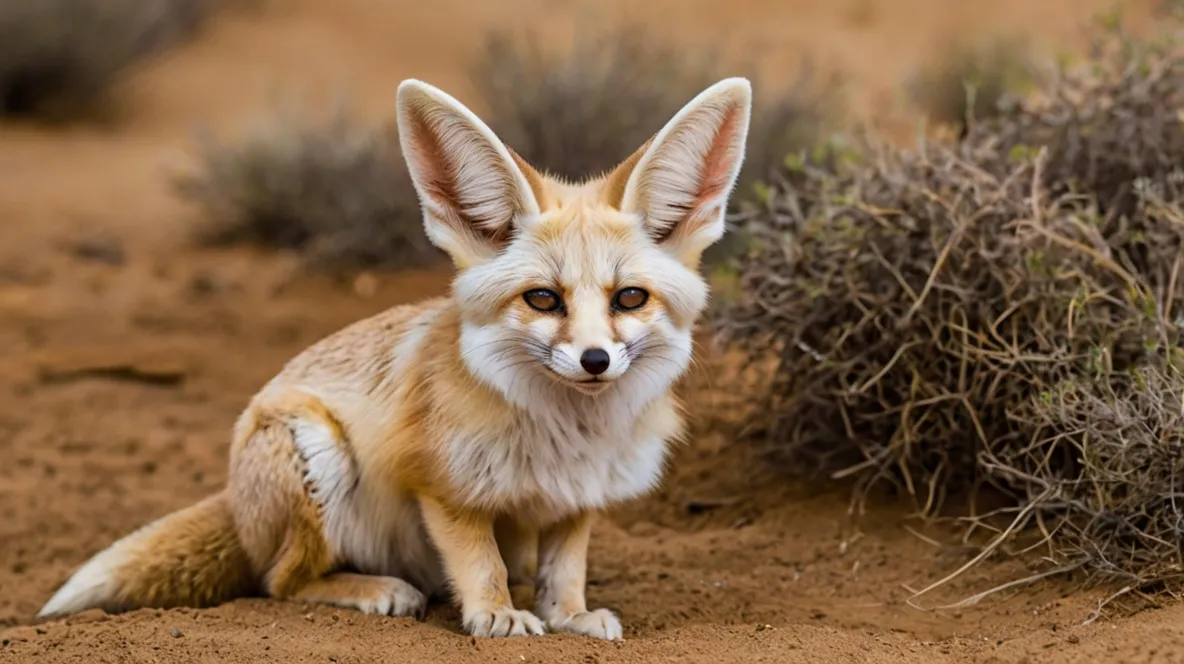Fennec Fox Pet Care Guide
Fennec Fox Essentials

Welcome to the comprehensive guide on caring for Fennec Foxes as pets! These small, desert-dwelling canids are known for their large ears and playful personalities. However, they require specialized care and attention to thrive in a domestic environment . This guide will provide you with all the essential information you need to ensure your Fennec Fox lives a happy and healthy life.
Did You Know?
Fennec Foxes are the smallest species of fox, with their large ears helping them to dissipate heat and locate prey in the desert . They are native to the Sahara Desert and North Africa and have adapted to survive in harsh, arid conditions .
Habitat & Enclosure
Creating the right habitat is crucial for the well-being of your Fennec Fox. Here’s what you need to consider:
- Temperature: Fennec Foxes are desert animals and need a warm environment. The temperature should be consistently maintained above 68°F (20°C) .
- Enclosure Size: Whether indoors or outdoors, the enclosure should be spacious enough for running, playing, and digging. For a single Fennec Fox, a minimum of 8x8x5 feet is recommended, but larger is always better . If housing a group, aim for at least 13x13x5 feet .
- Indoor Enclosure:
- A large dog crate can serve as a nighttime enclosure .
- Ensure the enclosure is “baby-proofed” as Fennec Foxes are naturally inquisitive and can be destructive if left unsupervised .
- Outdoor Enclosure:
- A wired enclosure with a concrete or wood floor is ideal to prevent digging and escape . Fennec foxes are excellent climbers and diggers, capable of digging up to 20 feet deep !
- The enclosure should be made of 12-gauge welded wire to protect against predators .
- Provide a layer of sand for digging and burrowing .
- Enrichment:
- Add branches and logs for climbing .
- Include toys designed for dogs, cats, or rabbits to keep them entertained .
- Food puzzles can stimulate their foraging behavior .
Lighting & Day/Night
Fennec Foxes are primarily nocturnal animals, meaning they are most active at night . However, they can adapt to their owner’s schedule .
- Day/Night Cycle: Provide a regular day/night cycle to help regulate their natural behavior .
- UVB Lighting: While not strictly necessary, UVB lighting can be beneficial for overall health, similar to other desert species. Consult with a veterinarian experienced in exotic animals for guidance.
Diet & Nutrition
A balanced diet is essential for the health of your Fennec Fox. In the wild, they are omnivores, consuming insects, small rodents, fruits, and roots . Here’s how to replicate that in captivity:
- Commercial Diet:
- A mix of high-quality dog food, cat food, or a commercial wild canid diet is often recommended .
- Choose a diet that is nutritionally complete and doesn’t require additional supplements .
- Protein:
- Ensure the diet contains 22-30% crude protein and 5-9% crude fat .
- Supplement with whole prey items like mice, chicks, and insects (such as crickets) to provide variety and engage natural feeding behaviors .
- Fresh Produce:
- Offer a variety of fruits, vegetables, and leafy greens, but limit these to 10-20% of their total diet to avoid diluting essential nutrients .
- Nutritional Requirements:
- Ensure adequate intake of vitamins A, D, E, B12, and K, as well as thiamine, riboflavin, and other essential nutrients .
- Taurine is especially important to support metabolic processes .
- Feeding Schedule:
- Feed twice a day, following portioned sizes to avoid overfeeding .
- Avoid free-feeding, especially for juveniles .
- Foods to Avoid:
- Avoid chocolate, fruit cores, artificial sweeteners, and grapes, as these can be harmful .
Handling & Enrichment
Fennec Foxes are intelligent and social animals that require regular interaction and enrichment .
- Socialization:
- They are the most social of all foxes and need an outlet for their energy .
- Provide interactive toys and activities to keep them mentally stimulated .
- Handling:
- With patience, Fennec Foxes can be leash-trained for supervised outdoor walks [10].
- Use positive reinforcement, such as praise and treats, to encourage desired behaviors .
- Enrichment Activities:
- Provide opportunities for digging and burrowing .
- Use food puzzles or hidden treats to promote foraging behavior .
- Offer durable toys designed for dogs, cats, and rabbits .
Enclosure Cleaning & Maintenance
Maintaining a clean habitat is essential for preventing disease and odors .
- Daily:
- Spot clean feces and remove any uneaten food .
- Change the water and clean the water dish .
- Weekly:
- Thoroughly clean food and water dishes .
- Wipe down surfaces as needed and check temperature and humidity levels .
- Monthly:
- Perform a more thorough cleaning, replacing or sifting the substrate as needed .
- Wipe down enclosure walls and décor .
- Deep Cleaning (Every 1-3 months):
- Temporarily move the Fennec Fox to a secure holding container .
- Remove all substrate and décor .
- Scrub the enclosure and furnishings with a reptile-safe disinfectant or a vinegar/water solution .
- Rinse everything thoroughly with plain water and allow it to dry completely before returning the substrate, décor, and the Fennec Fox .
- Avoid harsh household cleaners, as their fumes can be toxic .